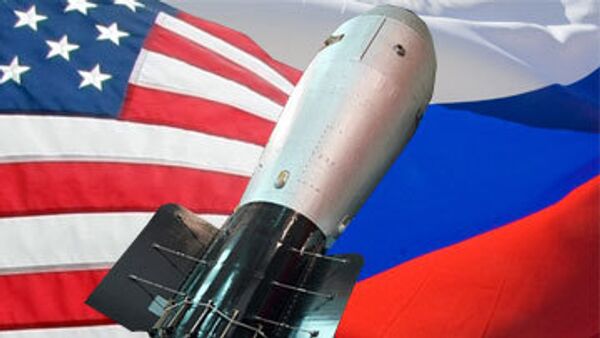Now it is clear that the official reset of Russian-U.S. relations will take place in Prague on April 8, with the signing of a new START treaty. It will be more of an Obama-Medvedev reset, because Russia and the United States are still facing too many hurdles to talk of renewing their relations.
The treaty, on the other hand, is practically ready, although it is not yet entirely clear how soon it will be ratified by the U.S. Senate. By mutual agreement, the treaty will be forwarded to parliaments simultaneously, immediately after it is signed. In the United States, many irritated Senators will oppose it.
Details are known only in general outline, but all 41 Senators have already qualified their approval of the agreement with two "ifs." They will ratify it if the administration: 1) upgrades U.S. intercontinental ballistic missiles and 2) abolishes the linkage between nuclear offensive weapons and missile defenses. If the former is somehow achievable, the latter will require amendments to the treaty, something Moscow is unlikely to accept.
By way of compromise, Moscow had to agree to a rather symbolic link between nuclear potential and missile defenses outlined in the treaty. In place of a clear-cut ban on the improvement of strategic missile defenses (which Moscow pressed for initially), the preamble only points to a connection between strategic offensive weapons and anti-missile systems. It states that the second contributes to an arms race in the first. It is this sufficiently philosophical statement that agitates the Republicans most and could seriously complicate the treaty's approval in the Senate.
Under the U.S. Constitution, the Senate gives consent to all U.S. international treaties by a two-thirds majority. Even with the current Democratic strength, Obama will have to win seven Republican Senators over to his side.
For Congress such "swings" between camps are not anything new or unexpected. They happen often enough. Only now the circumstances are ill-suited for compromises. Obama has just pushed through a health bill through Congress which had a mixed response in the country. In November, mid-term Congress elections will reelect the entire House of Representatives and one-third of the Senate.
The Senators have approved Obama's health bill. If now the Republicans agree (even partly) to the new START treaty, they will be accused not only of healthcare socialism, but also of surrendering nuclear security to the Russians. Such a burden is no ticket to the Senate. So whatever way you look at the treaty, to make it see the light of the day and to teach it to walk are two different things. Obama will have to use a very potent medicine to persuade Republican Senators to support the new START treaty. Such things are not achieved by rhetoric alone.
True, the scope for interpretation, painstakingly incorporated by legal experts, will probably allow both sides to see the treaty from different angles. Moscow has already announced, for example, that the agreement "will record in a legally binding way the relationship between strategic offensive and strategic defensive weapons and also the increasing importance of this relationship for START reductions." In Washington, Defense Secretary Robert Gates assured Congress that the new treaty with Russia was not interfering with U.S. missile defense plans. The missile defense program is not limited by this treaty, he said.
Generally, for all its significance, the new START treaty is still only a symbol, countdown to a new phase. It is true that the sides will cut their strategic nuclear arsenals by 30% and delivery vehicles by 59% (1,550 nuclear warheads and about 800 vehicles per side). But they will not be demolished. After all, this is control, not disarmament. All missiles removed from duty will be stockpiled. They can be reinstalled, if U.S. missile defense efforts go beyond reasonable limits. At any rate, Russia is openly hinting at that. Incidentally, it works for Russia's benefit, if we remember that Russian conventional arms are slightly inadequate and technically under-equipped.
But following George W. Bush, the new START treaty is a great stride forward. If anything, to start real nuclear disarmament, one must learn to control it first. We made some nuclear cuts in the last century. It is about time to make them in the new one. After all, there are about 23,000 nuclear strategic warheads in the world: 90% with the U.S. and Russia, and the rest with Britain, France, China, India, Pakistan, and Israel.
It is still a long way to go from Prague to real cuts.
MOSCOW. (RIA Novosti political commentator Andrei Fedyashin)
The opinions expressed in this article are the author's and do not necessarily represent those of RIA Novosti.




